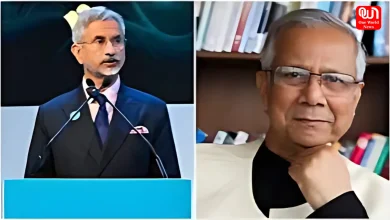Comfort Women – An Ugly Past Denied by Shinzo Abe

Why are China & South Korea rejoicing over Shinzo Abe’s death? Did Comfort Women really exist in WWII?
Highlights:
- Conflict with Korea
- Comfort Women
- Korea gained independence in 1945
- Why is Shinzo Abe hated by South Koreans and Chinese?
- Korea dissolved the 2015 funds from Japan
- Conflict with China
- Abe is mixed-bag
After the demise of former Japanese PM Shinzo Abe, the Chinese and South Korean government and officials passed their condolences.
However, the media and social media are flooded with polarised taunts there. It’s better to say they are rejoicing over the assassination of Shinzo Abe. Some are even hoping for better actions from Japan now.
What are the reasons for their happiness? Here is what you need to know!
Conflict with Korea
While South Korea was under Japanese imperial rule, Men were forced into labour and the army. Moreover, Women were turned into “comfort women.”
The term comfort women may not sound what it originally was.
These Comfort women were actually sex slaves. Yes, you heard it right!
Comfort Women
Comfort women were those young girls forced into sexual slavery by the Imperial Japanese Army before and during World War II. During WWII, the Japanese government enlisted 20000to 500000 Korean women to be Comfort women.
Neglect from the world, strange looks, and heavy burden forced the survivors to live like this. They can’t return home even after the war ends because, for them, it never ends.
Oksoon Jung, a grandmother, was tattooed all over her body when she was caught trying to escape her comfort station.
Most of the girls at these stations were teenagers in their early twenties, dreaming about getting married and having a happy family.
“They told me that they would give me work and even educate me at a silk factory in Japan. That’s why I followed them”, said Jung, who is now a granny.
However, the place she arrived was not Japan but a Japanese brothel in China. They were entitled to a new identity, “Comfort Women.” Their job was to sexually satisfy Japanese soldiers. And if they disobeyed, they were injected with morphine.
“I came on a truck under the officer’s orders. The lobby was filled with more than a hundred soldiers”.
Hwang So-gun, a 17-year-old, promised to provide a good income job.
“When I reached there, 20 other Korean girls and I walked into a big house at the River Mudinjian in China. Each girl was assigned one small room with a straw bag to sleep on, with a number on each door.
After two days of waiting, a Japanese soldier in army uniform, wearing a sword, entered the room. He asked me, “will you obey me or not?” then pulled my hair, put me on the floor, and asked me to open my legs. He raped me. When he left, I saw 20 or 30 more men waiting outside. They all raped me that day. From then on, I was assaulted by 15 to 20 men every night.”
Kum Ju-Hwang, another comfort woman, said, “If a woman got a disease, she usually vanished. We were also given ’606-shots’ so that we would not get pregnant or that any pregnancies would result in miscarriage.”
Gang Rape, forced abortion, dismemberment, and murder were everyday realities. Japanese soldiers used to wait in long queues extending outside the brothel.
The soldiers beat several girls, shoved them into the water, heaped earth into the pool, and buried them alive.
After the war, they were left to die. In September 1944, bodies of Korean comfort women murdered by Japanese soldiers were found.
Korea gained independence in 1945
After more than a decade of bilateral talks, Japan and South Korea signed a treaty on fundamental relations. Japan compensated $800mn to South Korea. But there is no formal apology from Japan. All the victims did not receive the funds.
After Japan found evidence of its war crimes from a study, it apologised to the victim women by passing an acknowledgment called the Korea statement.
Why is Shinzo Abe hated by South Koreans and Chinese?
Shinzo Abe, a representative of the house of Japan, issued a statement calling the accusation of ‘comfort women’ a lie. They are recruited with the will and are attracted to high salaries.
A group of surviving sex slaves demanded an apology from Japan government. Shinzo Abe publicly stated that there is no evidence that its army kept sex slaves despite the statements passed earlier from Japan.
Japan PM Abe visited the Yasukuni shrine where Japan’s war criminals are commemorated, which sparked anger in Korea.
In 2015, Japan and Korea struck a second deal to reach a final and irreversible agreement in which Japan contributed a further $8.3mn for victim women.
But victims opposed this, accusing their government of not considering their opinions and consultations.
Under public demand new Korean president, Moon Jae, backtracked the 2015 agreement.
Japan called back its diplomats from Korea after the Statue of Peace (statue of comfort women) was erected in front of its embassy.
The Korean supreme court ruled that two Japanese firms, Nippon Steel and Mitsubishi Heavy Industries Limited, pay compensation for forced labour in wartime.
Japan, however, denied this, saying everything was settled in the 1965 agreement.
Japan retaliated by hiking export rates to Korea, damaging Korean industry giants like Samsung. Ended the intelligence pact GSOMIA with Korea.
Korea dissolved the 2015 funds from Japan
Japan and South Korea joined RCEP- a free trade agreement between 15 Asia-Pacific nations.
There is still domestic unrest regarding Japan’s behaviour. But the Korean supreme court is ruling in support of Japanese firms, experts citing Korea’s increased dependence on Japan’s exports post-pandemic.
Conflict with China
China demands an apology from Japan regarding the issue of comfort women and the Nanjing massacre (1937). China is unhappy for the same reasons as South Korea.
There was a lack of diplomatic relations between 1949-72. China became a competitor of Japan. Abe frustrated China with QUAD’s plan to restrict China in the South China Sea and Indian ocean.
Abe even made aggressive military actions to condemn China’s string of pearls strategy. Abe was pro-Taiwan and openly criticised China.
Abe is mixed-bag
Abe’s plan to amend Japan’s pacifist constitution is at odds with Japan’s security realities. Abe put forward a policy to improve ties with China and met Xi Jinping in 2014, 2018, and 2019 but later openly criticised China for its expansionist ideas.
Being an ally of the US, there is a dispute over payment for US troops stationed in Japan.
Amidst the trade with Korea, Abe pulled back from Korea using platforms like RCEP and APEC.
There are several instances, witnesses and victims who approve of the presence of comfort women and the inhuman atrocities against women.
The forgotten comfort women came into the limelight again after the assassination of Shinzo Abe. However, their scars and screams still haunt many.







